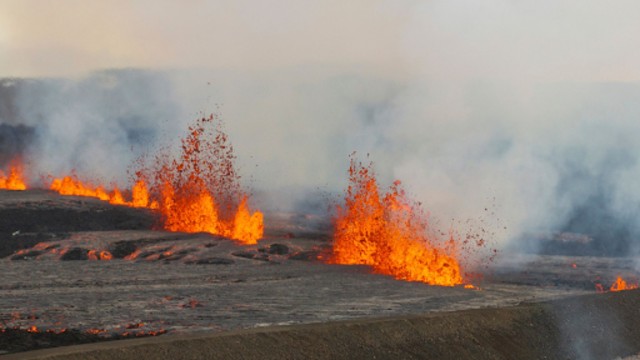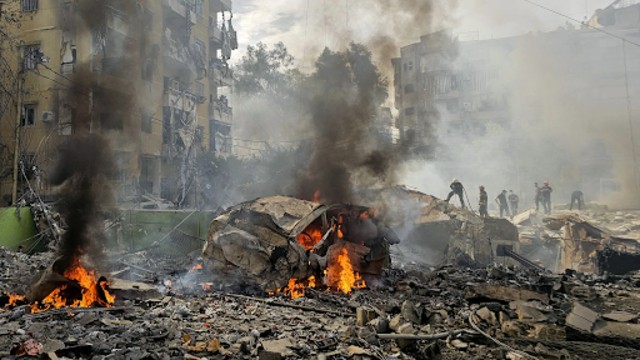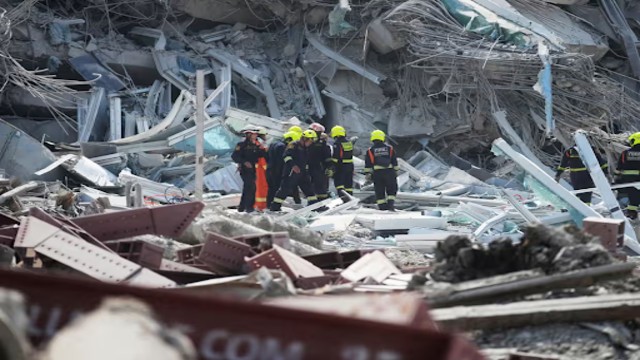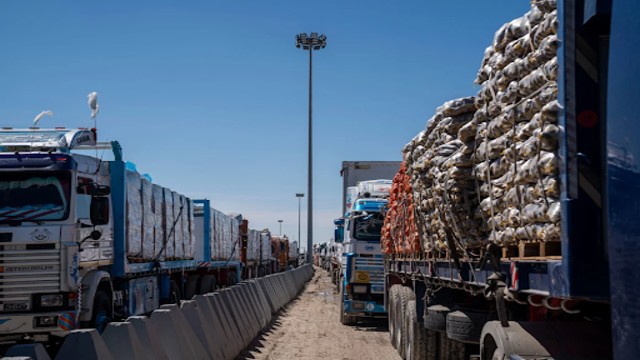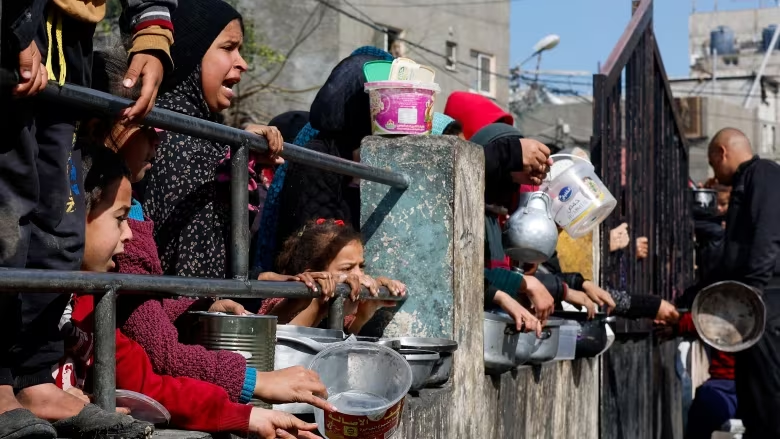
Palestinian children line up to receive meals from a charity kitchen in Rafah, located in the southern Gaza Strip, amid food shortages. The World Food Program announced a halt in aid deliveries to northern Gaza due to the ongoing conflict between Israel and Hamas militants. (Mohammed Salem/Reuters)
The World Food Program (WFP) revealed on Tuesday that it has been compelled to halt the distribution of food aid to the secluded northern region of Gaza due to escalating disorder and violence resulting from the breakdown of civil order. This suspension intensifies concerns over the looming threat of starvation.
Three weeks ago, the WFP initially suspended aid deliveries to the north following an incident where an aid truck was struck. Despite attempts to resume operations this week, convoys encountered gunfire and faced crowds of desperate individuals looting goods and assaulting a driver.
Efforts are underway to swiftly resume aid deliveries. The WFP has urged for the opening of crossing points directly into northern Gaza from Israel and a more efficient notification system to coordinate with the Israeli military.
A grim warning has been issued by the WFP regarding a rapid descent into hunger and disease, emphasizing that individuals are already succumbing to hunger-related causes. UN figures indicate a sharp decline in the entry of aid trucks into the besieged territory over the past two weeks.
The deteriorating situation has severely impacted aid intake and distribution, attributed to an Israeli failure to ensure convoy safety amidst military operations and a breakdown in security, allowing starving Palestinians to overrun trucks in search of food.
The worsening humanitarian crisis threatens to exacerbate suffering across Gaza, where widespread destruction and displacement have occurred due to Israeli military actions in response to attacks by Hamas.
As the conflict persists, renewed fighting and airstrikes have erupted in northern Gaza, indicating ongoing resistance from militants. The continued isolation of the north since late October has left hundreds of thousands of Palestinians in dire conditions, with reports of families resorting to drastic measures like rationing meals and mixing animal feed with grains for sustenance.
Amidst these dire circumstances, warnings from UNICEF and other humanitarian agencies highlight the imminent threat of preventable child deaths and soaring malnutrition rates, painting a grim picture of Gaza's humanitarian crisis.
In light of recent developments, the flow of aid trucks has dwindled, exacerbating an already dire situation. Israeli authorities cite logistical challenges and security concerns, while aid organizations point to bureaucratic obstacles and chaos within Gaza as contributing factors to the bottleneck at border crossings.
Despite international pressure and appeals for humanitarian access, the plight of Gaza's population remains precarious, with lives hanging in the balance as aid struggles to reach those in desperate need.




